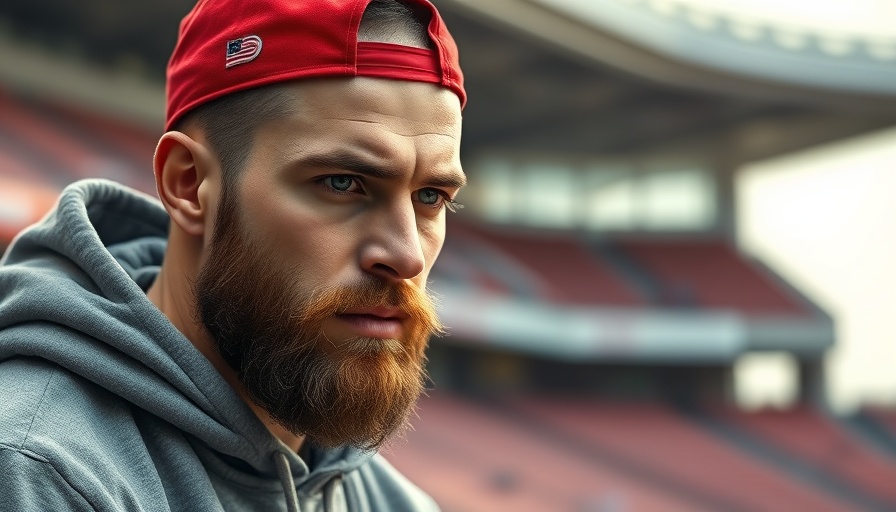
George Kittle and the NFL's Latest Memo
San Francisco 49ers tight end George Kittle recently made headlines with a humorous take on the NFL's ban of a widely used substance associated with enhancing performance—ammonium inhalants. Following a letter from the league warning players about the FDA's stance on these inhalants possibly masking concussion symptoms, Kittle quipped that he 'considered retirement' due to the ban on what he valued as a gameday boost. This light-hearted reaction sheds light on a serious matter concerning player safety, mental well-being, and the intricacies of professional sports regulations.
Understanding Ammonia Inhalants and Their Usage
Ammonia inhalants are small capsules that, when broken, release a pungent gas typically used to stimulate or revive players during games. In the competitive environment of the NFL, these inhalants have gained popularity among athletes seeking an edge on game day. Kittle's response to the ban underscores how ingrained the practice is among players, where the pursuit of performance-boosting methods almost becomes routine.
The NFL's Commitment to Player Safety
The NFL has stringent policies regarding substances that might impair player health. By pointing out potential risks associated with ammonia inhalants—specifically their role in masking concussion symptoms—the league is taking a proactive step towards upholding health standards and preventing injuries. Many within the league argue that player safety must come first, even at the potential cost of performance enhancements.
The Future of Performance Enhancements in Sports
Kittle’s jest raises an interesting question: What does the future hold for performance-enhancing strategies in professional sports? With increasingly rigid guidelines being enforced, players might need to explore alternative avenues to maintain peak performance. The discourse around what is considered acceptable in sport is evolving, as athletes, medical professionals, and regulators navigate the delicate balance between performance enhancement and player health.
Broader Social Implications
This situation is not merely an issue for athletes; it reflects a broader cultural context where health and performance are often at odds. As fans, we need to question the value we place on winning versus the physical and mental well-being of the players we support. If Kittle's humorous remarks shine a light on serious regulations, perhaps they can also foster conversations around the pressures athletes face regarding performance expectations.
An Emotional Insight into Athletes’ Lives
Athletes often express vulnerability that resonates deeply with fans. Kittle's quip about contemplating retirement illustrates the pressures he and his peers face from the league and public expectations. It's critical to recognize that beneath their impressive physical capabilities, players are human beings grappling with the same struggles as anyone else. The push for better policies regarding player safety and mental health support reflects a societal shift towards recognizing these shared experiences.
Conclusion: A Call for Change
As the conversation around performance-enhancing substances continues to unfold, it’s essential for fans and stakeholders alike to engage in proactive discussions about player safety. Support initiatives that focus on mental health resources and healthy performance metrics that do not compromise player care. The narratives surrounding athletes, like Kittle's, should challenge us to rethink our views on professionalism and well-being within sports.
For more on evolving regulations and implications in the world of sports, stay tuned to our coverage.
 Add Element
Add Element  Add Row
Add Row 



Write A Comment